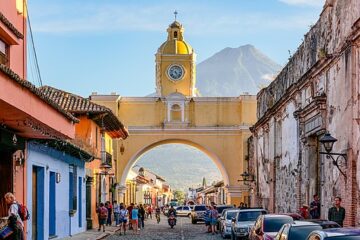Session 8, 11:00am-12:30pm
29. Art, Race, and Intersectionality in Early Modern Latin America and the Caribbean (1500-1800)–Part II
Location: Wine Room
The Cult of St. Anthony of Padua in Colonial Yucatán: The Intersection of Assimilation to Appropriation
C. Cody Barteet, Western University
Composing the World in Spanish Colonial Painting
Ana Girard, University of Houston/Museum of Fine Arts, Houston
Puerto Rican National Identity in the Work of José Campeche
Ilenia Colón Mendoza, University of Central Florida
Discussant: Aubrey Hobart, Savannah College of Art and Design
30. Mediated and Millennial Mexico
Location: Churchill Room
Chair: Mario Bahena Urióstegui, Johnson C. Smith University
The Highly Mediated Digital Mexicanidad: How the Mexican Nation is Currently Reimagined in YouTube
Mario Bahena Urióstegui, Johnson C. Smith University
The Barista Knows Best: Gendered Work Experiences in Mexico’s Specialty Cafés, 2010-20
Jordan Buchanan, UC San Diego
31. Close Encounters: Sexuality and Transgression in Colonial Yucatan, Mexico
Location: Mayfair Room
Chair: Catherine Tracy Goode, The Americas Research Network
‘As Her Son’s Pimp:’ Sex and the Encomienda in Colonial Yucatan
Hannah R. Abrahamson, Emory University
Defying the Pragmática in Yucatan: Freedom to Love in the Time of the Intendants
Mark W. Lentz, Utah Valley University
“‘[I want you to] …confess that I have honor:’ Women’s Honor and Sexuality in Early 1790s Mérida”
Catherine Tracy Goode, The Americas Research Network
Discussant: Michele McArdle Stephens, West Virginia University
32. Education, Disability, and Resource Allocation in the Time of Pandemic
Location: Parlor Room
Chair: Mahdia Ben-Salem, Lincoln Memorial University
Recursos de enseñanza post-pandémicos en cursos de lengua para hablantes por herencia
Karla González, University of Mary Hardin-Baylor
Experiencias Docentes para la Creación de una Cultura de Prevención de Desastres. Caso: Escuela Segura
Miriam Milagros Carreño Colchado, Universidad Nacional Mayor de San Marcos
El Año Más Largo: Caring for people with psychosocial disabilities amidst the pandemic in Lima, Perú.
Julio Villa-Palomino, University of North Carolina at Chapel Hill
